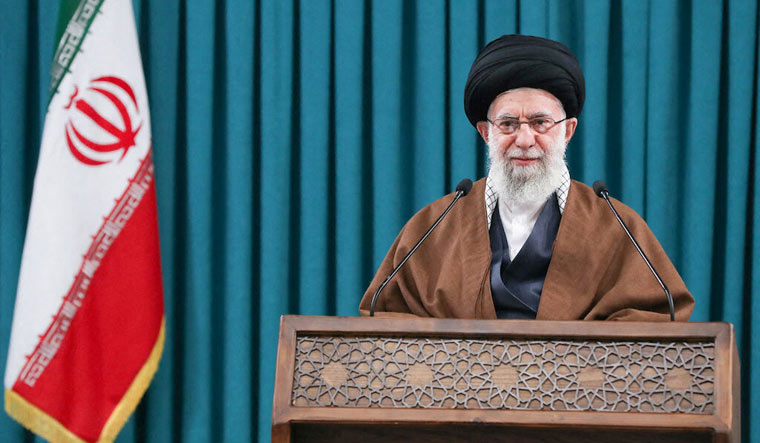After a top general of Iran’s powerful Islamic Revolutionary Guard Corp (IRGC) was killed in an Israeli airstrike in Damascus, Syria on Monday evening, the most important question in the global strategic community is how far Iran would go to avenge his death.
Will Iran jump headlong into a war with Israel and by default with the US, or will it escalate the war effort in the traditional way through its proxies—the Hezbollah, Hamas and the Houthis who together comprise the ‘Axis of Resistance?'
Monday’s strike by the Israelis had hit the annexe building of the Iranian embassy in Syria killing Major General Mohammad Reza Zahedi who commanded the IRGC in Syria and Lebanon from 2008-2016. Another high-ranking official killed in the raid was Brigadier General Mohammad Hadi Hajji Rahimi. Both of them were acting as advisors to the IRGC.
Saying that Iranians are contending with the heavy grief of the IRGC leaders' 'martyrdom' and vowing a firm response, Iran’s supreme leader Ali Khamenei said in a broadcast on Tuesday: “We will make them regret this crime and other ones, by God's will”.
President Raeisi presided over a meeting of the Supreme National Security Council (SNSC) on Monday night after the Israeli attack. A SNSC statement issued after the meet said a meeting headed by President Raeisi was held where “appropriate decisions were made”.
Notably, Iran’s proxies escalated their activities against Israel after General Qasem Soleimani, who headed the al-Quds Force, the most elite unit of the IRGC, was killed in a precision strike by US killer drones near Baghdad airport on January 3, 2020.
Considered close to Khamenei, Gen Soleimani’s value lay in the fact that he cobbled together pro-Iran militias under an umbrella outfit in Iraq, Yemen, Syria and elsewhere.
Iran had thus far avoided a direct all-out war with Israel and the US because of several reasons although it has struck targets believed to host Israeli establishments in Iraq and Syria.
Iran has in place a very active programme to make the nuclear bomb which is reported to be in the finishing stages. An all-out war will jeopardise the nuclear programme which has suffered several breakdowns and acts of sabotage till now.
There are domestic issues too.
Khamenei is already 84 years old and is on the active lookout for a suitable successor with the right Islamist credentials. While the constitution mandates that a body of 88 senior clerics can select a successor, a three-man commission which includes President Ebrahim Raisi and the senior clerics Ayatollah Ahmad Khatami and Ayatollah Rahim Tavakol is already looking closely at a list of possible successors.
An all-out war at this stage could paralyse the hunt for the next leader who could provide much-needed stability and continuity to Iran’s Islamic government.
The Iranian economy is also battling an economic slowdown brought upon by the US-led sanctions as well as issues of financial corruption and fiscal indiscipline. In a condition like this, an open war will bring upon further misery.
Interestingly, several countries like Russia, China, Saudi Arabia, Pakistan, Oman, the United Arab Emirates, Jordan, and Qatar have strongly criticised the Israeli action.



